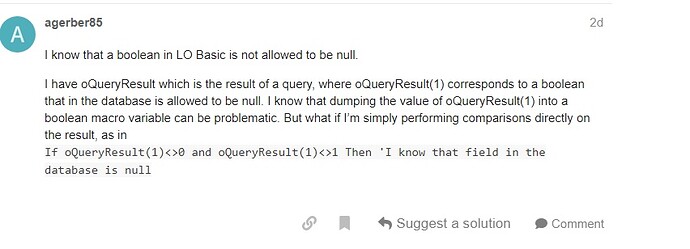I know that a boolean in LO Basic is not allowed to be null.
I have oQueryResult which is the result of a query, where oQueryResult(1) corresponds to a boolean that in the database is allowed to be null. I know that dumping the value of oQueryResult(1) into a boolean macro variable can be problematic. But what if I’m simply performing comparisons directly on the result, as in
If oQueryResult(1)<>0 and oQueryResult(1)<>1 Then 'I know that field in the database is null

